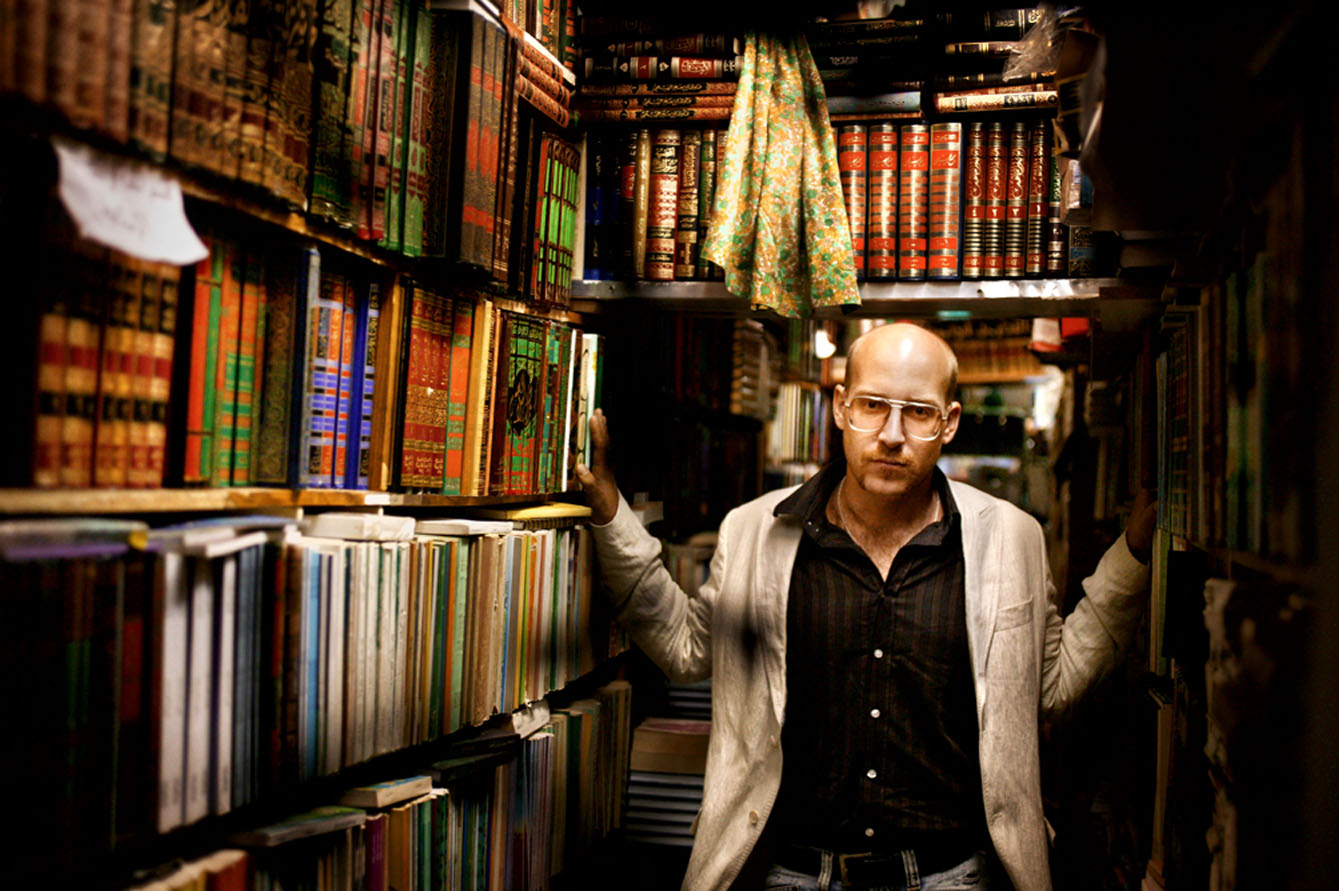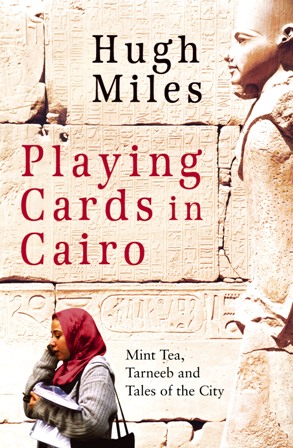
Jonathan Mok: What inspired you to write the book?
Hugh Miles: While writing my previous book, “Al Jazeera – How Arab TV News Has Challenged the World,” I had to travel all over the Gulf and North Africa. I soon realised it would make more sense to be based somewhere in the region than to commute back and forth from London every few weeks. I wanted somewhere central and accessible both to Europe and all the countries in the region. I love big cities so Cairo seemed like the obvious choice.
Cairo does not suit everyone – it’s crowded and terribly polluted – but I found it fascinating. It is the cultural heart and soul of the Arab world, where Arab trends start and I just wanted to soak it all up. The fact that you can live so well in Egypt compared to the cost of living of London certainly contributed to that decision!
I started working freelance for Western newspapers and magazines, covering everything from terrorism to the arts. I was on the point of leaving and then unexpectedly I met an Egyptian girl and fell in love.
Dating an Arab Muslim girl is not easy and I soon realised that I would have to find a clever way to spend time with her if we were not going to fall foul of conservative Egyptian society. So I began to play cards with her and her friends.
The stories I heard around the card table taught me much about the lives of young women in the Egyptian megalopolis and I felt privileged to glimpse what is normally the hidden half of Arab society.
I wanted to write about the cards sessions in a newspaper, but I knew it would not be possible as strictly speaking what I heard was not news. That’s when I decided to write a book.
Jonathan: Does the continuation of that traditional practices such as wearing veils, symbolize the failure of secularisation that the Egyptian government has tried to implement since Nasser?
Hugh: Women have always worn veils in the Middle East, even before there were any Muslims. Over the years the veil has gone in and out of fashion, almost disappearing from view altogether until a heavy-handed British administrator banned it, declaring it to be the “fatal obstacle” between Egypt and progress – establishing the veil as the symbol of resistance to the colonial regime for years to come.
Nowadays women wear veils for many reasons. It still symbolises resistance, no longer to colonialism but to the avowedly secular Mubarak regime. 60% of Egyptians have never known any other ruler in their lifetime and with no secular opposition parties to speak of, Islam has become the only alternative – even though Egypt’s principal Islamic group, the Muslim Brotherhood, remains outlawed.
The regime insists religion should be kept separate from politics – one reason why Egypt’s First Lady Suzanne Mubarak is never veiled – but with inflation running at its highest level in years and food prices rocketing, the people have had enough. If there were truly free and fair elections in Egypt tomorrow the Muslim Brotherhood would win, or at least win the largest minority. So the secularisation policy has definitely failed.
Jonathan: Having lived in Egypt for a while, do you believe that some Western accusations against Islamic treatment of women such as the lack of personal freedom to choose careers or marriage partners, are justified?
Hugh: Women in Egypt suffer enormously. They are expected to do the child rearing and domestic chores, to abstain from interaction outside their family and to compete on an unequal footing with men in the work force.
Egyptian women are better educated than ever before, but constant sexual harassment makes their lives a daily misery and their lives are often blighted by discrimination and violence – frequently at the hands of male relatives. Worst of all, sex crimes are typically regarded as the female victim’s responsibility.
However, it would be an over simplification to say that Egypt’s endemic sexual discrimination is all because of Islam. Islam is a factor, but it is important to note that Christian women in Egypt suffer in exactly the same way as their Muslim sisters, suggesting the problem is cultural rather than religious. (Christians make up around 10% of the Egyptian population.) A lack of employment, education and hope all make matters worse, as does a government that tacitly accepts the situation.

Jonathan: Let’s talk about recent Egyptian riots against the rising price of bread and other commodities. Do you think that the riots have sent warning signals to the government over the widening income gap of the society?
Hugh: The bread crisis seems to be under control but the underlying problems remain. Egyptian society is polarising and while a tiny fraction of businessmen well connected to the regime have become massively wealthy, the average Egyptian now gets by on less than $1000 a year and a quarter of the country live on less than $2 a day. With prices out of control and rampant annual inflation, in real terms ordinary people are poorer now than they were in the 1950s.
The government says it will take time for the wealth to trickle down but clearly some sections of society are already at boiling point. Until the regime is prepared to make the same kind of deep political concessions that it has made economically – ending the systematic rigging of elections and opening the door to real democracy – tension in Egypt looks set to increase.
Jonathan: Will the thirty percent wage increase of government employees help reduce tensions?
Hugh: The government basic public-sector salary increase was a dramatic solution to a desperate problem. Basic commodities have doubled or even tripled in price in just a few months and they needed to do something urgently to quell social unrest.
In the short term, the salary increase bought the government some time. A nation-wide protest against the rising cost of living scheduled for May 4 turned out to be the damp squib which ministers have attributed to the wage increase, although opposition figures dispute this, saying it was because strike organisers made a tactical error calling for a protest so soon after another national strike last month.
What is clear is that a long-term solution to this problem has yet to be found.
The government plans to fund the 30% salary increase in large part by raising the price of fuel, cigarettes and car license fees. This is likely to increase inflation further, so to cut people’s spending the Egyptian Central Bank is raising interest rates again – the third time in just eighteen weeks.
The problem is that since Egyptians generally have very little debt, raising interest rates is unlikely to make much difference to their spending habits, and if inflation persists and food prices continue to soar, once again millions of the poorest will be hit hard and social unrest will continue.
Jonathan: What future you believe Egypt holds for its young people?
Hugh: Egypt looks like it could be facing a bumpy few years ahead. Although he still appears in good health, President Mubarak turned 80 in May and no successor has ever been nominated. Many assume his favoured son Gamal will assume leadership of the National Democratic Party but a power struggle may yet ensue.
Whoever takes over the reins inherits a complex knot of social and economic problems. By 2025 the population will have spiralled to 90 million and 450,000 new jobs will have to be generated each year simply to accommodate the number of young people entering the work place for the first time.
Meanwhile the regional picture also appears highly unstable. War and chaos loom across the region, and thousands of desperate refugees and economic migrants continue to arrive from across Africa and Iraq. In January hundreds of thousands of Palestinians burst through the Gaza blockade, an event that could repeat itself at any time.
What threatens national stability the most is not the death of the President or an attack by militant Islamists, but a provincial strike that spreads to infect the workers and police across the country. Already this year there have been dozens of strikes in factories across the country as terrible socio-economic conditions push the ordinary workingman towards breaking point. One of these days he might finally get there.

Impressive!
I am reading now “Al-Jazeera, How Arab TV challenged the World” an Intriguing, pertinent and rich book. It documents a great deal of information based (undoubtedly) on profound research and hard work. Covering the challenges faced by Al-Jazeera in both the Arab and Western world, Hugh demonstrates a supreme level of professionalism and objectivity.. I highly recommend it.
Thank you for posting this interview… it gets me curious about the book.
Hanane Bouqentar